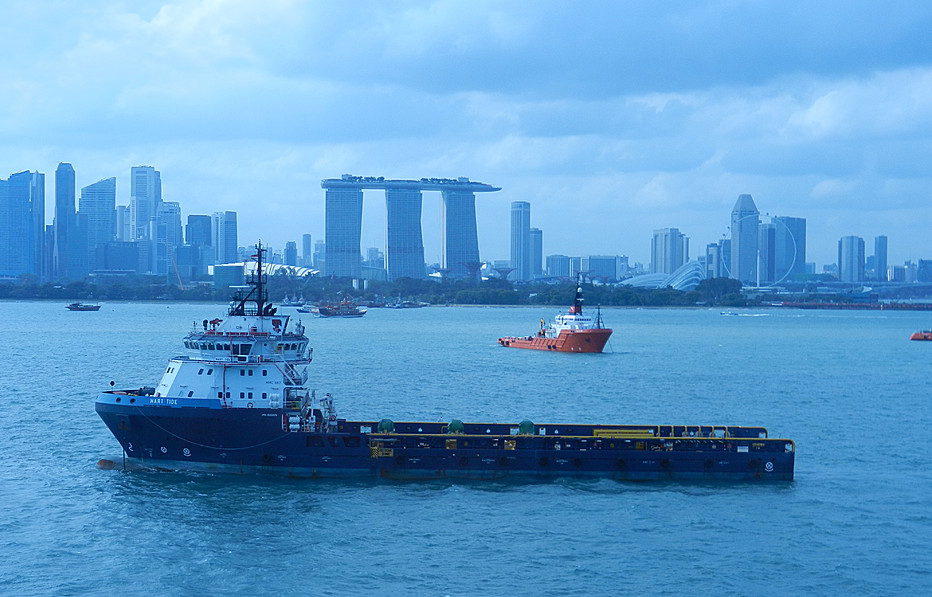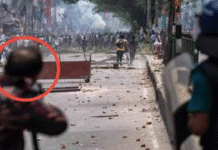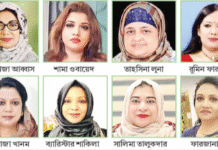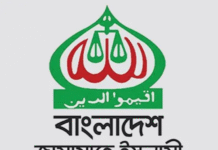by F R Chowdhury
Singapore has a unique place in history. Geographically also it has a unique location. Trade from Europe, Asia, Africa and Mid-East has to pass through Singapore to reach Australia, New Zealand, China, Japan, Korea and Vietnam. It is a God given location that made it a transit point for thousand of sea-going ships. It is also a hub-point for major global operators wherefrom they link up with feeder services to many other locations. Singapore has lot of history connected with thesubcontinent. During the WWII (World War II), Japanese occupied the Philippines and Singapore (that saw the largest surrender of British forces). This eventually became a mobilising point for the Japanese as they moved towards India via Burma (now Myanmar). Philippines were eventually liberated by General MacArtur with the huge backing of the US Navy. Netaji Subash Chandra Bose made an alliance with the Japanese and Major General Shahnawaz defected to Singapore to organise Indian National Army to liberate India. Those are now history linked with Singapore. However, after the war, back under British rule, Singapore made tremendous progress and became the home of thousands of Malays, Indians (mostly Tamils), Chinese and others to make it a prosperous business hub. When Britain left the Malay Peninsula, Singapore joined briefly with Malay to make Malaysia but later became an independent entity.
Bangladeshis have been sailing on British ships for over two hundred years but mostly as ratings. Most joined ships through Calcutta Shipping office though a few through Bombay. I still remember how as a cadet I came to know from the Helmsman of our ship that Khawja Shahabuddin (later Pakistan’s Ambassador to Egypt) was a Second Officer on a British India ship that was torpedoed by the Japanese. It is in their interest that HMS Dufferin was established by the British Government. It was through training in “Dufferin” that a number of Indians joined the Navy and the merchant marine as officers. Commodore Asif Alavi, the first Commandant of Juldia Marine Academy and Rear Admiral M H Khan, former chief of Bangladesh Navy were trained in Dufferin. After independence of the sub-continent, Britain provided study facilities in merchant navy training centres in Conway and Worcester for young Pakistanis because Pakistan did not have anything like “Dufferin”.
After liberation of Bangladesh we got the services of some well trained merchant navy officers like Capt. Hemayet Chowdhury, Capt. QABM Rahman, Capt. M. Shafi, Marine Engineer Sakhawat Hussain, Marine Engineer Zakaria Khan Majlish, Marine Engineer Zahedur Rahman, Capt. SMA Islam and Marine Engineer Tareck Anis Ahmed. Each one of them contributed in the initial development of shipping in Bangladesh. It was the dynamic leadership of Capt. QABM Rahman that enabled us to make initial foothold in shipping sector. I must also mention about Dufferin trained Mr. QMS Zaman who later served as the Chairman and Managing Director of Bangladesh Shipping Corporation. Another Dufferin trained person Fatty Mohsin became a famous comedian film star. We have to also remember Capt. ML Rahman who started his early career in the Pakistan Navy but by virtue of his talent and efforts became the first Bangladeshi Commandant of the Marine Academy. They were the pioneers of our marine community. The first batch of marine academy trained officers was yet to become master mariners or marine chief engineers. That was history. That was 1971, the year of liberation.
From there we made a long journey to our present position. Today our maritime sector is fully self-reliant on our own nationals. Our well trained man-power can possibly sustain another ten-fold increase in maritime activities. It is not only in numbers. It is also in quality. Today our mariners are employed all over the world, both afloat and ashore, bringing in name and fame for the country. Our mariners are holding very responsible jobs ashore in USA, Canada, UK, Australia, Hong Kong, Singapore, Saudi Arabia, UAE and many other places. Some of them even work for the Government of their host countries – a remarkable achievement indeed. Many of them, because of their knowledge, skill and expertise, have been granted nationality of their host countries. It is a tremendous achievement for our marine community.
The establishment of marine academy in 1962 was great contributory factor to this development. However, there are others – some direct entry, some ex-fisheries, some ex-naval personnel who were not so lucky to have the initial academy training but by sheer determination and hard work made to the top ladder of merchant marine career. Today they all work together as a big marine community.
I started this article with a reference to Singapore. When I went to Singapore soon after our liberation (1973-74), I do not remember to have met any marine community person of Bangladesh origin in Singapore. Today, by the grace of Allah, we have a big community there. Some of them are working with the Administration as surveyors and examiners. It gives me great pride to see Bangladeshis leading delegations to IMO (International Maritime Organization, a specialized agency of the United Nations) for Singapore and Australia. There are others who work as technical directors, superintendents, managers and teachers in polytechnics. Some of them also work for leading international classification societies in Singapore. In the maritime sector in Singapore, Bangladeshis are probably the most dominant expatriate force. They are highly placed persons in Singapore society.
I am so glad to know that the marine community in Singapore have decided for a get-together. They deserve to celebrate. Let this celebrations bring them closer for better cooperation. Let us celebrate what we have achieved and work together to achieve more in future. I wish the get-together every success. May Allah help us achieve even greater heights.
[The writer belongs to the first batch of marine academy cadets and happens to be the first among ex-cadets to become the commandant of the same academy. He retired as Deputy Chief Examiner of the UK-MCA and lives in the UK.]











But none of them have become as good as a writer as you are. Thank you for another wonderful article.
A vibrant write-up on world Bangladeshi maritime community. We have to place Bangladesh worldwide in this manner.